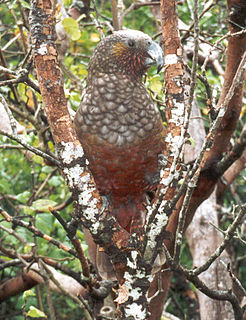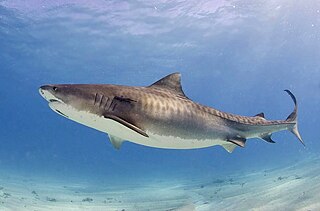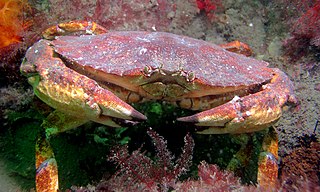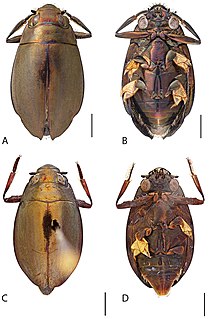
The genus Nestor is the type and only extant genus of the parrot family Nestoridae. Together with the kakapo, and the extinct parrots in the genus Nelepsittacus, they form the parrot superfamily Strigopoidea. The genus Nestor contains two extant parrot species from New Zealand and two extinct species from Norfolk Island and Chatham Island, New Zealand, respectively. All species are large stocky birds with short squarish tails. A defining characteristic of the genus is the tongue, which is tipped with a hair-like fringe. The superficial resemblance of this tongue to that of lorikeets has led some taxonomists to consider the two groups closely related, but DNA evidence shows they are not.

Galeocerdo is a genus of requiem sharks that have lived since the Paleocene epoch. While these sharks were formerly diverse, only G. cuvier survives today.Also,tiger sharks can be 25 ft long.That's 7 meters!

The shovelnose guitarfish, Rhinobatos productus, is a ray in the family Rhinobatidae. It becomes mature at an estimated seven to eight years old. Males are between 90 and 100 cm long, while females are around 99 cm at that age. The ray can live up to 11 years, and full-grown sizes are around 120 cm for males, and females reach 137 cm. They range from central California south to the Gulf of California. Morphological and genetic variations occur in the mitochondrial DNA in those found in the Gulf of California, evidencing their isolation from the rest. Because of this, the conservation of this species must be carefully managed to preserve the biological diversity. The shovelnose is considered to be a primitively developed ray, with many features of both sharks and rays.

The Norfolk kaka is an extinct species of large parrot, belonging to the parrot family Nestoridae. The birds were about 38 cm long, with mostly olive-brown upperparts, (reddish-)orange cheeks and throat, straw-coloured breast, thighs, rump and lower abdomen dark orange and a prominent beak. It inhabited the rocks and treetops of Norfolk Island and adjacent Phillip Island. It was a relative of the New Zealand kaka.

Cancer productus, one of several species known as red rock crabs, is a crab of the genus Cancer found on the western coast of North America.
Chiloglanis productus is a species of upside-down catfish endemic to Zambia where it is found in the Lunzua and Lufubu Rivers. This species grows to a length of 4.9 centimetres (1.9 in) SL.
Ascidae is a family of mites in the order Mesostigmata.
Arctoseius austriacus is a species of mite in the family Ascidae.
Arctoseius babenkoi is a species of mite in the family Ascidae. It is found in Europe.
Arctoseius cetratus is a species of mite in the family Ascidae.
Arctoseius eremita is a species of mite in the family Ascidae.
Arctoseius kolymensis is a species of mite in the family Ascidae.
Arctoseius minutus is a species of mite in the family Ascidae. It is found in Europe.
Arctoseius miranalis is a species of mite in the family Ascidae.
Arctoseius nikolskyi is a species of mite in the family Ascidae.
Arctoseius tschernovi is a species of mite in the family Ascidae. It is found in Europe.
Arctoseius venustulus is a species of mite in the family Ascidae.
Productus subaculeatus is an extinct species of brachiopods. Its fossils are present in the Devonian.

Dineutus productus is a species of whirligig beetle in the family Gyrinidae. It is found in North America.





